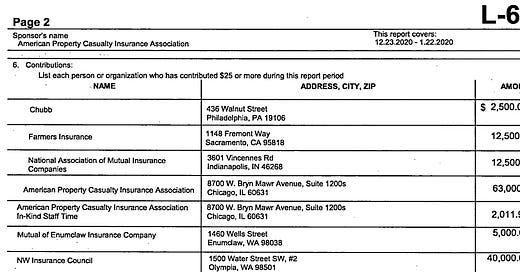Cutoff day: Mullet's committee guts credit-scoring bill
Bill to rescue dairy industry from overtime claims turns into overtime for all farm workers; House committee chair dumps bills, citing pandemic restrictions
Monday was policy committee cutoff day at the Legislature, but even if procedural minutia isn’t your jam, don’t wander off just yet. The pressure to get bills passed out of their first committees lends itself to all manner of influence, gamesmanship, even drama. The events of cutoff days remind us frequently why elections matter and of the enduring alle…
Keep reading with a 7-day free trial
Subscribe to The Washington Observer to keep reading this post and get 7 days of free access to the full post archives.



